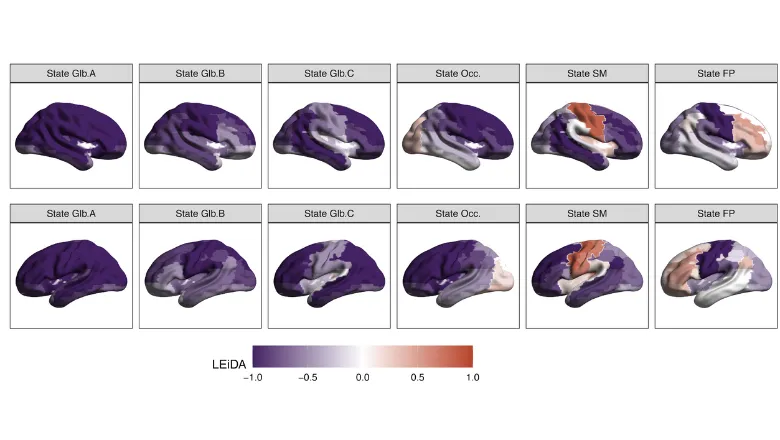A groundbreaking study conducted by King’s College London has uncovered distinct differences in the brain activity and connectivity of term and pre-term babies, shedding light on how these patterns influence developmental outcomes.
Supported by Wellcome and the National Institute of Health and Care Research (NIHR) Maudsley Biomedical Research Centre, this research is the first of its kind to examine the moment-to-moment communication between brain areas during the first few weeks of life.
Published in Nature Communications, the study found that the dynamic patterns of brain connectivity observed in babies were associated with future measures of movement, language, cognition, and social behavior at 18 months old.
Lead author Dr. Dafnis Batallé, along with co-authors, analyzed brain scans from 390 babies, identifying different transient states of connectivity that may provide insights into brain development and subsequent behaviors as the baby grows.
The study highlights the importance of understanding neonatal brain connectivity in relation to conditions such as ADHD, autism, and schizophrenia, which may have origins early in life.
Using advanced techniques and state-of-the-art imaging technology, the researchers evaluated functional Magnetic Resonance Imaging (fMRI) data from both term and pre-term babies to capture a dynamic picture of brain connectivity.
Dr. Lucas França, the first author, emphasized the use of methodologies from computer science and physics to unveil the complexities of the neonatal brain, providing unprecedented insights into brain dynamics in early life.
By identifying six different brain states and comparing term and pre-term babies, the study revealed that pre-term birth is associated with distinct patterns of connectivity, particularly in frontal and occipital brain regions.
Professor Grainne McAlonan, a joint senior author, emphasized the significance of these findings in understanding how time spent in or outside the womb shapes brain development and subsequent developmental milestones.
The data for this study was sourced from The Developing Human Connectome Project (dHCP), providing high-resolution brain images from unborn and newborn babies to support research into brain development and mental health disorders worldwide.
Professor David Edwards, Principal Investigator of dHCP, highlighted the power of this open science program in advancing our understanding of human brain development.
#BrainDevelopment #NeonatalHealth #Research #ChildDevelopment
If our reporting has informed or inspired you, please consider making a donation. Every contribution, no matter the size, empowers us to continue delivering accurate, engaging, and trustworthy science and medical news. Independent journalism requires time, effort, and resources—your support ensures we can keep uncovering the stories that matter most to you.
Join us in making knowledge accessible and impactful. Thank you for standing with us!

